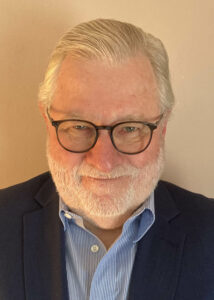
15 Feb 2024 Mark Mostert: The Woke FAA Has an Inclusion Problem – But It’s Not What You Think
While it’s laudable that the Federal Aviation Administration (FAA) wants to increase job opportunities for people with disabilities, Able Americans‘ Dr. Mark P. Mostert calls the FAA’s employment inclusion program “fervently misguided.”
In a column published at Human Events, Mark — a powerful advocate for those with disabilities — explains why this program fails to effectively serve both the disability community and American travelers as whole. Read his entire column below.
When it comes to being hired and working in the real world, people with disabilities face significant challenges and are historically underrepresented in the workforce. Any efforts to recognize this issue and move towards rectifying the problem should be applauded.
On the other hand, here’s a staggering exemplar of government gone wild to the point of senselessness: Consider the FAA’s National Outreach Program for Diversity and Inclusion – People with Disabilities Program, the big-government answer to workforce underrepresentation. The program is putting the world on notice that the FAA is being “inclusive” by specifying the disability populations they are targeting for “on the spot,” “noncompetitive” hiring if the applicant (or someone on their behalf) applies for an open position.
Here’s the list: Hearing (total deafness in both ears), vision (blind), missing extremities, partial paralysis, complete paralysis, epilepsy, severe intellectual disability, psychiatric disability, dwarfism.
Where to begin?
First, the program does not define each category precisely. For example, hearing impairment is clearly defined, but not severe intellectual or psychiatric disability. According to the program, suitable candidates will instead need to have a doctor or related professional determine their disability status.
Second, it is problematic to make hiring “noncompetitive.” If the FAA truly insists that people with disabilities are like everyone else, why not have a competitive hiring process, even if the competition is between two people with the same disability at the same level of severity? Or are they suggesting that people with these disabilities should be treated differently than others? “On the spot,” “noncompetitive” hiring is both demeaning and patronizing.
Third, this mishmash of disability categories makes no sense. The categories ignore a fundamental distinction between people with physical disabilities vs. those with cognitive or psychiatric disabilities. People who are totally deaf, blind, missing extremities, have partial or full paralysis or dwarfism may well be cognitively able to do any job they are hired for with reasonable accommodations. Things get much murkier when engaging in “on the spot,” “noncompetitive” hiring of people with severe intellectual disability and psychiatric disabilities.
Severe intellectual disability, by definition, means that a person is seriously compromised in being able to do things most of us take for granted. Many people with severe intellectual disability are unable to care for themselves and are often unable to read, write or communicate effectively. Most struggle to comprehend the world around them. They require extensive and often complicated support for their cognitive challenges. Many have comorbid medical conditions that require constant attention.
To be sure, people with severe intellectual disabilities should be supported and cherished in every way, but it’s a stretch to imagine them holding down a full-time (or even part-time) job. Further, people so diagnosed will clearly test the reasonable accommodation standard of the Rehabilitation Act and the Americans with Disabilities Act because accommodation will have to far exceed “reasonable” workplace supports.
Psychiatric disabilities: Just exactly which psychiatric disabilities are we talking about? How severe? Certainly, many people with some psychiatric disabilities function very well in the workplace. For example, someone with mild seasonal depression who takes appropriate medication will be able to meet job requirements. On the other hand, someone who is actively psychotic or delusional would have great difficulty holding down federal or other employment.
I suspect that the blending of physical and intellectual categories and not addressing levels of severity are deliberate.
Here’s why: The concept of disability has long since abandoned the “medical model” approach, where disability characteristics were defined by medical and psychiatric evaluations and assessments. It has been superseded by a “social model” of disability that holds, essentially, that there is no such thing as a disability, because we are all different, some more different than others, and that everyone can achieve whatever they want. In this context, the only reason people with disabilities, irrespective of the severity of their condition, are “disabled” is because society has done a poor job of accommodating “difference.”
Disability as social construction leads exactly to this fervently misguided approach of this FAA program. It raises many questions.
I’ll resist the obvious: Do we really want blind pilots or actively psychotic air traffic controllers?
I think the answer is no, but already airlines continue to bow to woke:
Some airlines are beginning to allocate two seats, only one of which the customer paid for, to accommodate severely overweight passengers. They are doing this because of social pressure from activists who claim discrimination because they don’t fit into a single plane seat.
And in 2022, Boeing changed the incentive focus among top executives from passenger and employee safety targets to an emphasis on achieving targets based on DEI and “climate change” – also in response to activists. It’s reasonable to question whether this change in focus played into the series of apparent manufacturing and design issues with Boeing aircraft.
Big government and corporation proclamations of inclusion and diversity predictably lose the forest for the trees. Caught between momentum to do the right thing and misguided social policy, all that’s achieved is a nonsensical program that serves neither the disability community nor wider society.
At Able Americans we believe that real-world, market-driven solutions for the disability community – based in logic and tempered with compassion – are a clear path to true inclusion of people with disabilities, no matter their condition or its severity.
Mark P. Mostert, Ph.D. is senior researcher at Able Americans, the National Center’s project to support Americans living with intellectual, developmental and physical disabilities. This was first published at Human Events.





